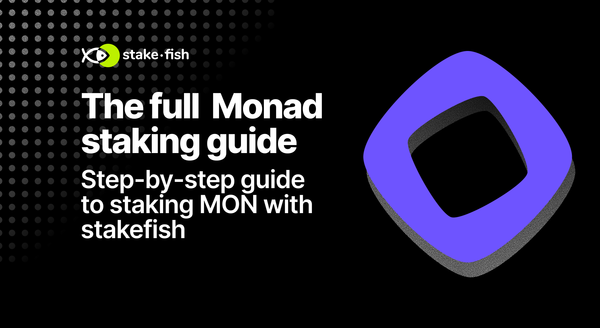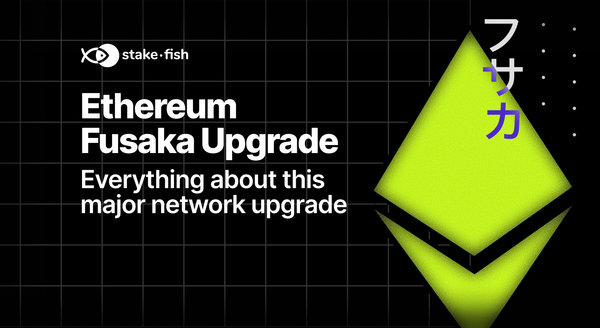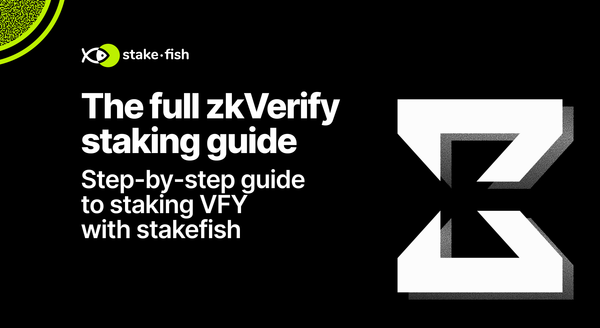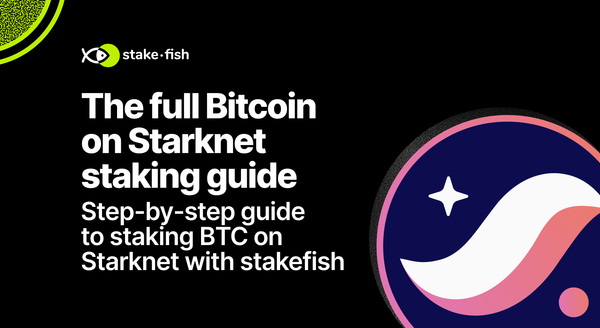[grant.fish grantee Vol.1] Everett Protocol
Hi Cosmonauts and welcome to these written interviews with our grantees of grant.fish!
![[grant.fish grantee Vol.1] Everett Protocol](/content/images/size/w1200/max/800/1-ZctR_lnAlh1fxvOx26Ic5A.png)
Hi Cosmonauts and welcome to these written interviews with our grantees of grant.fish!
grant.fish is a project aimed to add value to the Cosmos community. We wanted to introduce in detail the two teams that have been selected to receive the grants: Everett Protocol and Unslashed.
If you missed the article in which JK explains how grant.fish validator works and the benefits it aims to bring to the community (bad, it means you still don’t follow us on Twitter and Telegram), you can find it here.
Everett Protocol
I met the Everett team, or at least its initial form (Nonce A-Team), at the Cosmos Hackatom that happened last July in Seoul. I was very impressed by the guys. While all the other teams were having fun with a little healthy networking from time to time, they just kept their heads down on their laptops, completely lost in their calculations. The only index that showed their humanity were empty pizza boxes stacked in the corner of their workstations.
I cannot explain my surprise at seeing them present their idea to the judges shortly afterwards. The confidence in their project was really palpable.
And now, 6 months later, they have managed to excel and were selected to be among the first two projects supported by the grant.fish validator.
Commitment, dedication, and passion can really do everything in life.
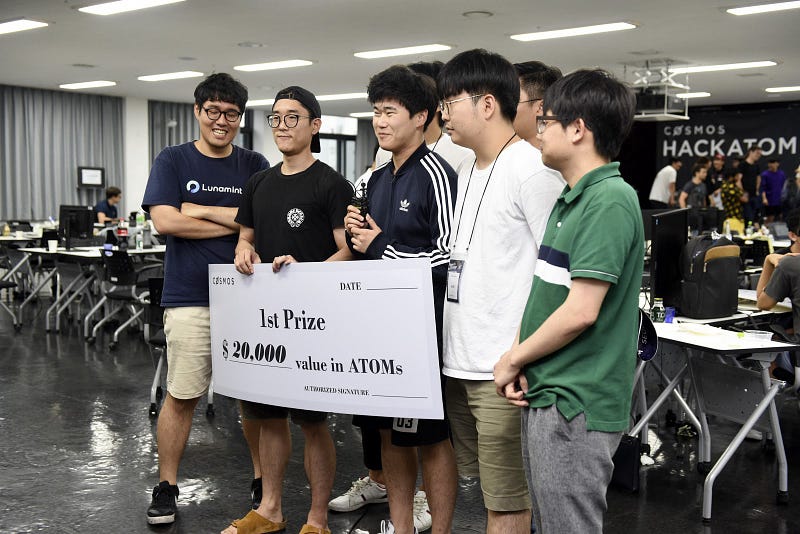
Daniela (Q): Hi guys, glad to have you here with us today! How about we warm up the atmosphere by introducing you to our community?
Jake: Hi, I’m CEO and co-founder of Everett Protocol.
Ryan: Hi this is Ryan, founder of Everett Protocol.
Tony: Hi, I’m head of engineering of Everett Protocol.
John: Hi, I’m in charge of business development & investor relations.
Daniel Lee: Hi, I’m the operations manager of Everett Protocol.
Daniela (Q): Now a great curiosity of mine: where did you meet for the first time? Where did the spark that gave birth to the alchemy that now binds the members of Everett Protocol come up?
Jake: I first met Ryan in the nonce community in 2018. At that time Ryan was researching crypto-economics and we had a pretty serious conversation about crypto-economic designs. Starting from Ryan, the nonce community gave us a chance to meet amazing people.
Ryan: nonce, a blockchain-focused community in Seoul is where the team first met up.
Tony: I first met Ryan at BUIDL Seoul in 2018, and met Jake in the nonce community in 2019.
John: I met Jake when I was working at A.T. Kearney. At that time Jake was working at Deloitte as a consultant. We’ve known each other for a while and worked for quite a long time afterwards.
Daniel Lee: I’ve met Jake and Ryan at nonce in 2018. I was working at CodeChain and SOOHO. In Hackatom Korea, I joined the nonce team and then we won the first prize.
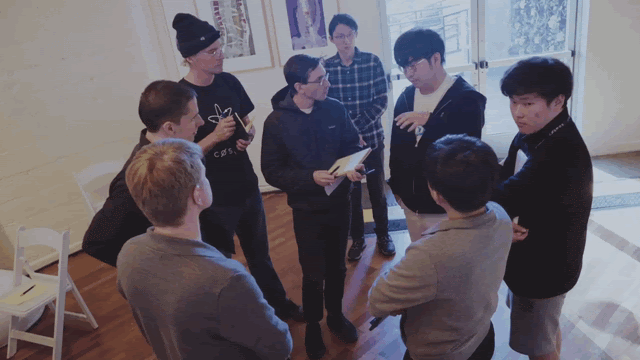
Daniela (Q): It is really fascinating to see how such different backgrounds can co-exist and bring out the best in each other. Now the question that arises to me is: how did the idea at the root of Everett Protocol come about? What is the essence of the project?
Jake: Ryan first gave an idea about designing a system enabling derivatives in the Cosmos ecosystem. I first thought it would bring a catastrophic event like the 2008 global economic crisis. I personally thought that the design was similar to MBS (mortgage backed security) that was at the heart of the 2008 crisis. However, with more conversation we concluded that Staking Derivatives were inevitable in Proof of Stake systems. Our Medium article will be helpful to understand.
Ryan: During the ideation phase, I’ve realized that the Proof of Stake consensus algorithm currently lacks the consideration of its potential economic effects on the ecosystem. Upon further research, I was able to identify a few potential problems that could arise, and thus came up with a workable solution which now became Everett.
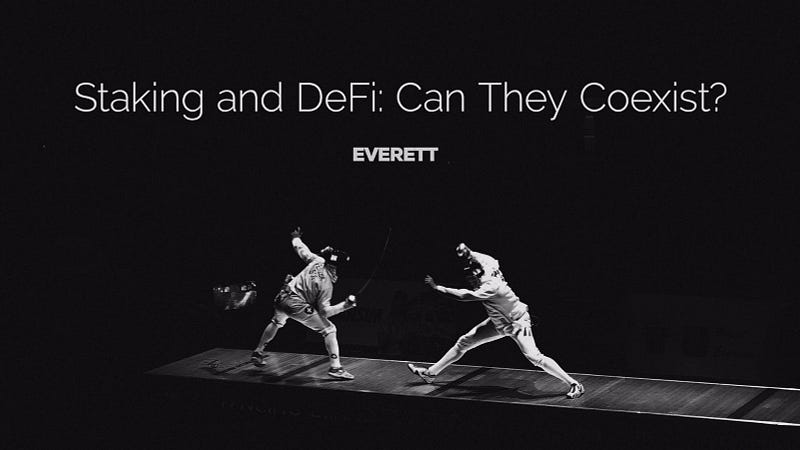
Daniela (Q): Since the beginning of your journey as a team, what do you think has changed? What do you think you’ve grown into?
Jake: We started as a very lean and fun team before winning the Cosmos Hackatom and became very serious after winning Hackatom Seoul. So I resigned from Deloitte even though I was the youngest person to join as a consultant. Cosmos gave us a second chance to live as an enthusiastic startup lover.
Ryan: The Cosmos Hackatom was a great opportunity for us to validate the viability of the project. Since then, we have further specified our milestones and made a few minor pivots to make our vision more achievable. Although we cannot reveal those additional projects as of now, we are excited to announce them in the near future.
Tony: The prototype shown during the Hackatom Seoul was a rough way to implement interchain staking that is necessary for the Everett Protocol. After some research, we came up with a more general way. We plan to use an interchain account which allows the destination chain to manage an account on the source chain. This design can be used for other purposes outside of just interchain staking. We are hard at work to implement this interchain account design.
John: Business models are being more actively discussed with the products being developed. Daniel helps a lot on not only development but also ideation of new business models from the perspective of a developer.
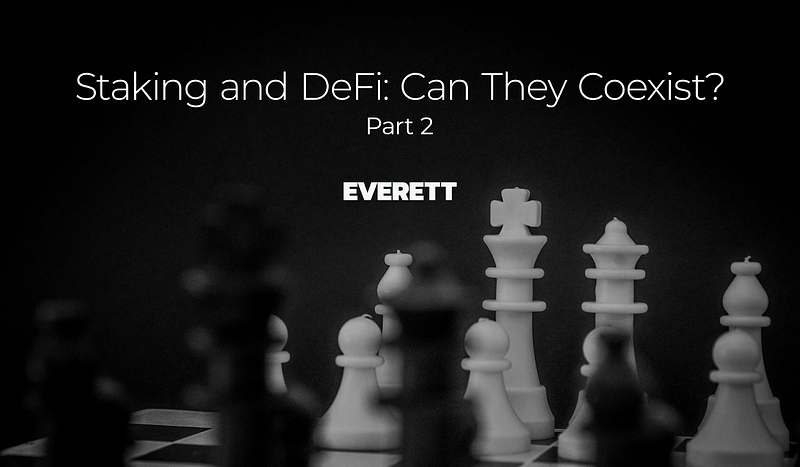
Daniela (Q): So, over time your ideas and expectations about the project have definitely changed. Has this also changed your short and long term goals?
Jake: We are working on a secret project on Ethereum now! Can’t say anything more ;)
Ryan: Short-term: Raising more awareness on our problem statement on Proof of Stake is currently one of our highest priorities. Additionally, a proof-of-concept on Ethereum is currently in development, which we hope to use to prove our statements.
Long-term: More support from the community including actual usage of our future products. While staking ensures the security of the network, it introduces capital inefficiencies as the locked up capital is unable to be used or invested into the ecosystem. As more delegators / stakers make their positions liquid, we expect more ecosystem investments, catalyzing the growth of the network.
John: Short-term: Get support from good investors so that we could grow in a more effective way.
Long-term: Getting the product ready and actually used with a number of partners like central exchanges.

Daniela (Q): grant.fish is a Cosmos validator, to which the community explicitly delegates to support projects that care about the development and enrichment of the ecosystem itself. As Everett Protocol members, what do you think you can improve in the network?
Ryan: The Cosmos community is truly unique in that the members are heavily committed even without direct financial incentives. However, the need for more sustainable financial incentives to drive research and development is becoming evident. By enabling the utilization of capital that was previously locked up, we hope to spark more direct ecosystem investments from the community in a more sustainable way.
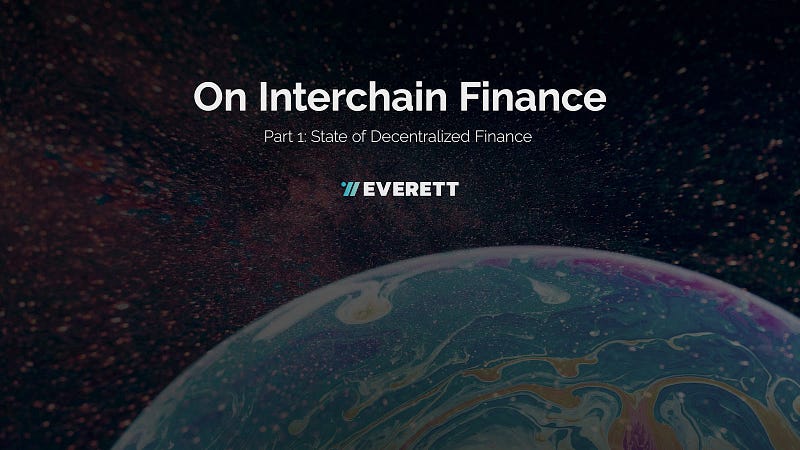
Daniela (Q): What could push an ATOM holder to stake with grant.fish and help your project come to life? And what does it mean for you to receive this grant?
Ryan: Holders of ATOMs have an indirect incentive to help maximize the utility of them. Delegating to grant.fish will help support Everett, which in turn helps the network to be more capital efficient, resulting in an indirect financial gain for delegators. In short, delegating to grant.fish will make your ATOMs more valuable long-term.
Additionally, we are considering giving out unique Everett-branded goodies to grant.fish delegators as a sign of gratitude.
John: ATOMs, as the real basic asset, increases the value supported by the Everett layer. grant.fish’s support will accelerate the biz/tech development as not only financially but also non-financially, the network and other capacities will empower Everett to move forwards.
Daniela (Q): Do you currently have open applications in your team?
Jake: We are currently hiring contract developers and researchers who have a background in investment banking and experience designing derivatives such as DLS and DLF.
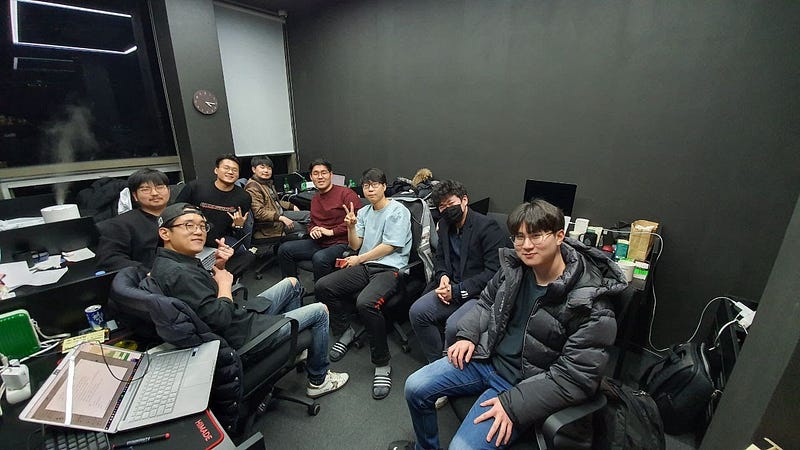
A lot has happened since my first meeting with the Everett Protocol team. I can’t wait to see what amazing projects they will show to us in the future.
And if you too can’t wait to see the Everett Protocol realized, do as I do and support them by staking your ATOMs to the grant.fish validator!
Make the network secure, support Everett Protocol and sleep well! Stake with grant.fish!
We know staking.
Website: https://stake.fish
Telegram: https://t.me/stakefish
Twitter: https://twitter.com/stakefish
Instagram: https://www.instagram.com/stakedotfish
LinkedIn: https://b.fish/linkedin


